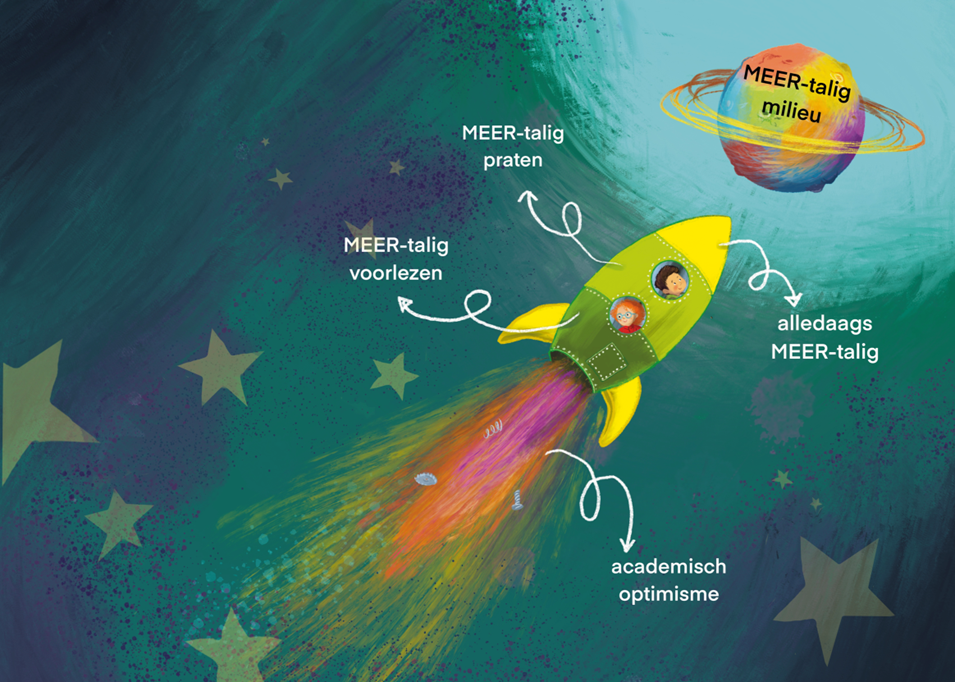Local and international research shows that pupils' language skills are declining at all educational levels. Reference is often made to ‘easy culprits’ such as increasing diversity and multilingualism in the classroom. However, research also shows that principles such as focusing on language and communication and involving parents for little cost yield great learning returns.
The project ‘It’s not rocket science’ wanted to translate these scientific insights into a concrete and impactful approach for preschoolers. It aspired to encourage teachers and parents to interact in a linguistically rich way with their preschoolers and to embed this sustainably in preschool education. Our approach was shaped in a three-stage rocket. Fuelled by academic optimism, we build language-rich opportunities in this three-stage rocket: from reading aloud together with parents, through linguistic interactions in the classroom and bridging these practices to the home environment, to facilitating linguistic activities in everyday home situations. The project's evidence-based approach demonstrated the effectiveness of the three-stage approach. The ways in which the project can be rolled out qualitatively in a wider context were established during intervision sessions with the participating schools.
One of the directors of the researching schools concluded: “Finally, a project that succeeds in bridging vague scientific principles from heaven to our daily classroom practice where we sometimes find ourselves with our feet in the mud.”
Convinced (and proud) of our approach, we are happy to share our research process and results in a spotlight session at EAPRIL. Because of the evidence-based approach of the research, we can highlight scientific principles, but more importantly, how they are concretely translated on the classroom floor. In addition to purely scientific input, you can also expect visual material, talking boards with activities, sound boards, parents and teachers talking and in action, ... . In this way, we try to inspire educational professionals to translate the ideas into their own educational context.
Because our project relies on didactic principles that are universally applicable, we regularly make the leaps to other educational levels. We show how the three-stage rocket inspired students, teachers and researchers at other educational levels to stimulate qualitative interaction there too.
If you are convinced of the importance of language for all children, regardless of their mother tongue, background or age, we hope to meet you at EAPRIL!
Saar Steverlinck & Hanne Rosius
PXL Research
P.S.: You can also check out our workshop to get started yourself!

